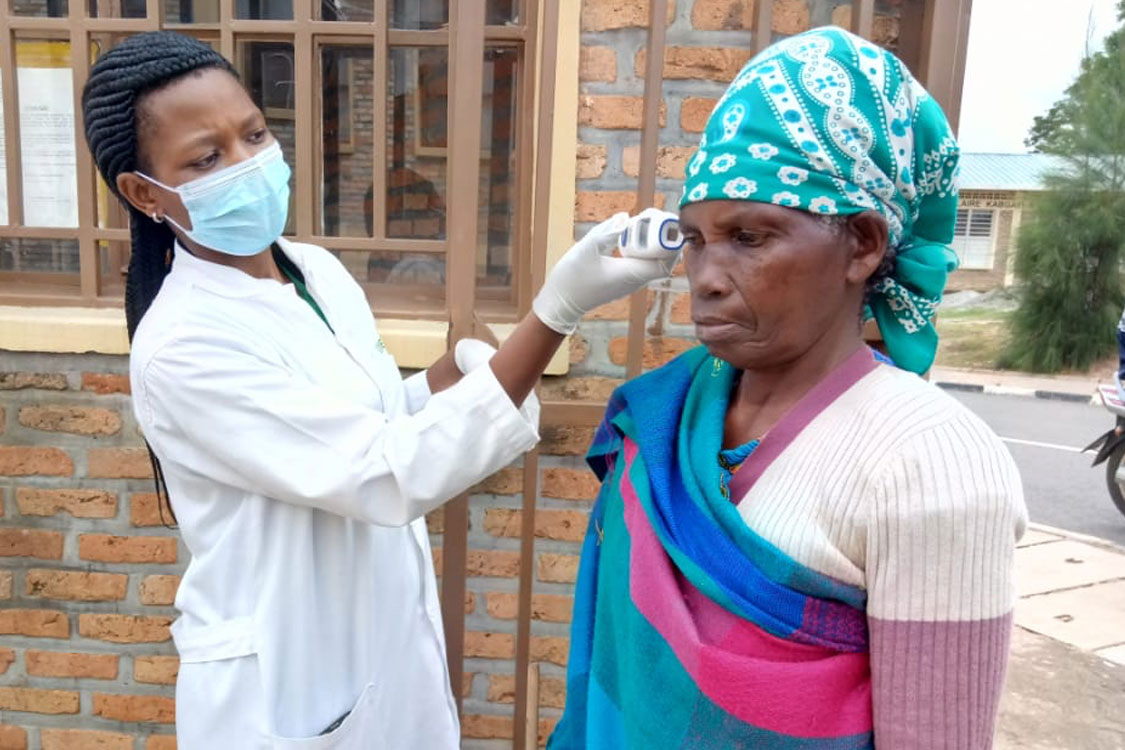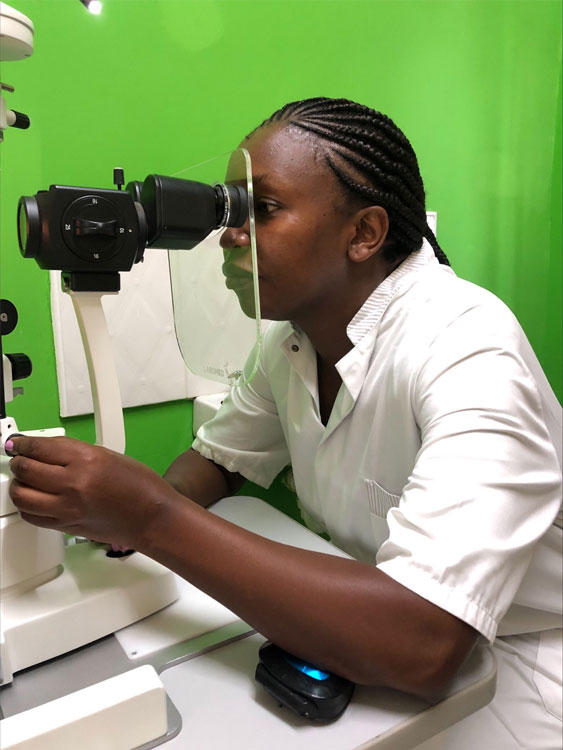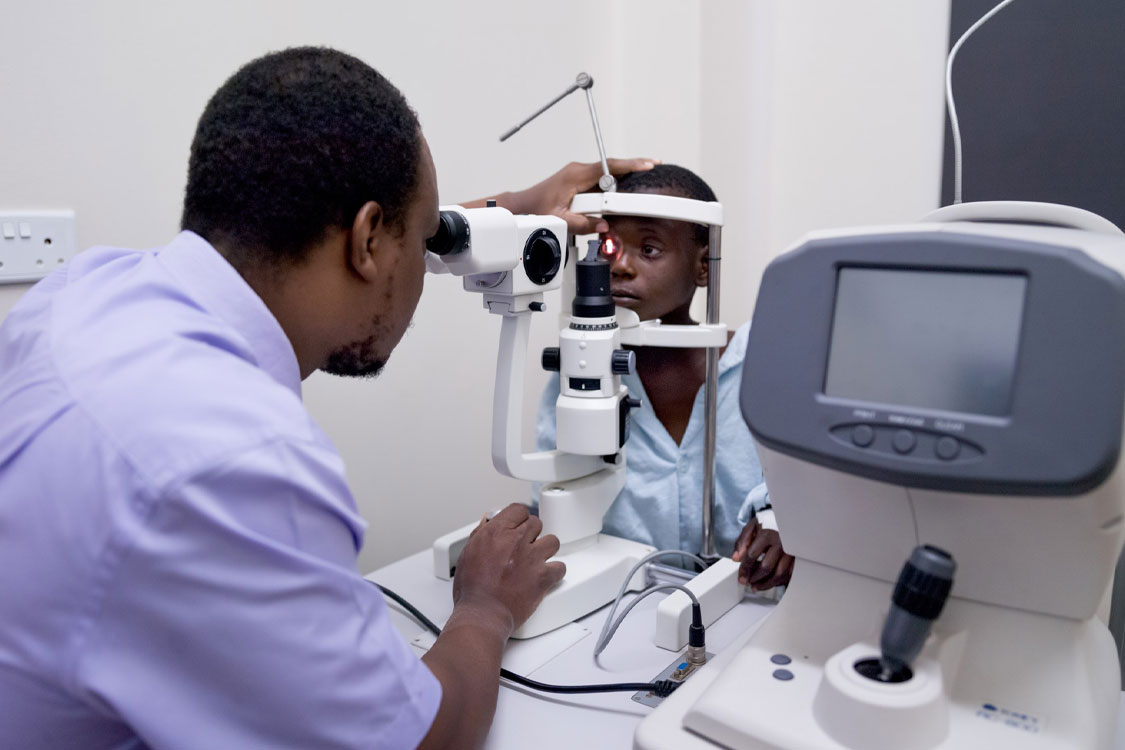

The Coronavirus pandemic is having an alarming impact on the numbers of people living avoidably blind.
75% of the world’s blindness can be treated or prevented. The challenges accessing eye services or treatments during the pandemic, especially in low and middle income countries, are leading to more people than ever needlessly losing their sight.
This month, as part of our Right to Sight campaign with CBM UK, we’re hearing more about the impact of COVID-19 from CBM’s Inclusive Eye Health Advisor, Dr Monicah Bitok:
“It’s been very worrying to see the impact of covid. In countries where the levels of blindness were already shocking, they are now even more alarming. During periods of lockdown over the past 2 years some eye health units were closed completely, only dealing with trauma cases. But when these clinics opened, patients were required to be covid tested before they came for surgery. Many of these patients cannot afford the journey in the first place from rural areas to the hospital, so to pay for a covid test on top of journey costs was impossible, and as a result many people missed out on vital sight saving operations. For many the damage has been irreversible”.Listen to Monicah’s interview on BBC Radio Cambridgeshire to find out more.

CBM is currently running a fundraising appeal called Light up Lives, which QAV is supporting. Donations will help to scale up CBM’s work preventing blindness in the world’s poorest places – and thanks to a group of generous funders, all donations before 28 April will be DOUBLED!
The funds raised will enable people with treatable blindness to see again through sight-restoring surgery, eye treatments and glasses.
Find out more about Light up Lives and how you can get involved.

Deeper dive: the blindness crisis in Zimbabwe
Zimbabwe has one of the highest rates of blindness in the world. The leading cause is cataract, which can be treated with straightforward surgery.
The country has a desperate shortage of trained eye health workers and most hospitals don’t have the equipment they need and the dire economic crisis means that even transport to hospital is out of reach for many people – and the situation has become even more desperate due to Coronavirus.
In 2022, CBM hopes to work with their long-term partner Norton Eye Unit, one of the leading eye hospitals in Zimbabwe, to improve their capacity to deliver inclusive eye health services, including sight-restoring cataract surgeries.